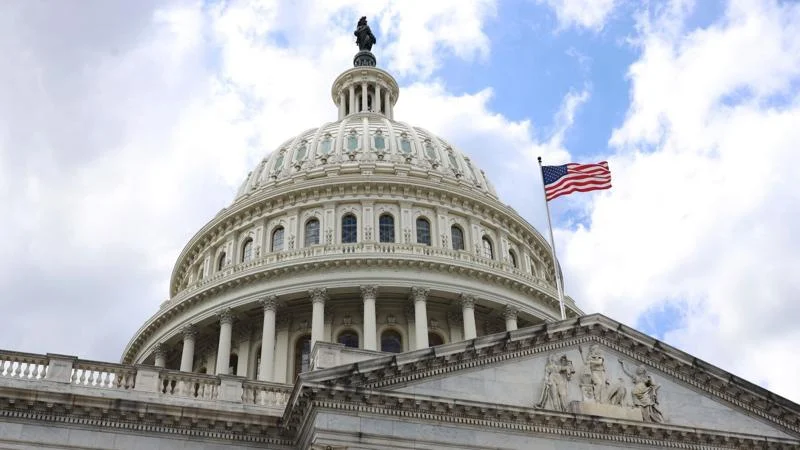As debate over the “One Big, Beautiful Bill” ramps up in the U.S. Senate, Congress’ nonpartisan scorekeeper projects that the GOP’s expansive tax cut and spending package would boost U.S. deficits by $3.3 trillion over the next decade.
The Congressional Budget Office’s score estimates that Senate changes to the House of Representatives’ legislation would add an additional $800 billion to the national debt.
CBO previously projected that the bill passed through the House last month would add $2.4 trillion to the U.S. debt over 10 years. They updated this number to $2.8 trillion when considering the economic impact of the bill.
The new analysis also estimates that 11.8 million Americans would lose healthcare coverage under Medicaid in the next decade if the Senate’s legislation is written into law. This number shot up by nearly one million since CBO’s analysis of the House-passed version.
CBO’s report comes at a pivotal time for Senate Majority Leader Rep. John Thune, R-S.D., as he rallies his party to pass the budget bill through the Senate this week. Thune has a narrow window of time to get nearly every member of the Senate GOP conference on board if he wants to meet the July 4 deadline.
Congressional Republicans dismissed CBO analysis of their “big, beautiful bill,” citing instances in the past when the agency was incorrect in its estimates.
White House Press Secretary Karoline Leavitt argued earlier this month that Congress’ scorekeeper has veered from its nonpartisan nature. She said that while many CBO employees have previously worked for Democrat offices and campaigns, no staffer with a similar Republican background has been employed by CBO in 25 years.
“Unfortunately, this is an institution in our country that has become partisan and political,” Leavitt said.
Senate Minority Leader Rep. Chuck Schumer, D-N.Y., blasted Republicans’ disregard for CBO’s numbers during floor debate Sunday.
“Republicans are doing something the Senate has never, never done before – deploying fake math and accounting gimmicks to hide the true cost of the bill,” Schumer said.
The Committee for a Responsible Federal Budget, a non-partisan think tank, backed Democrats’ arguments, suggesting that CBO’s score might even understate costs because “the legislation relies on a number of arbitrary expirations.”
“The Senate should reject this bill and work toward a fiscally responsible alternative that reduces rather than explodes our high and rising debt,” the group said.
The Senate’s “vote-a-rama” began Monday morning, a marathon session in which members can propose amendments to the budget package before a final vote is called.
Thune can only afford to lose one more Republican in the final vote if Sens. Rand Paul, R-Ky., and Thom Tillis, R-N.C., do not budge in their opposition to the legislation.






